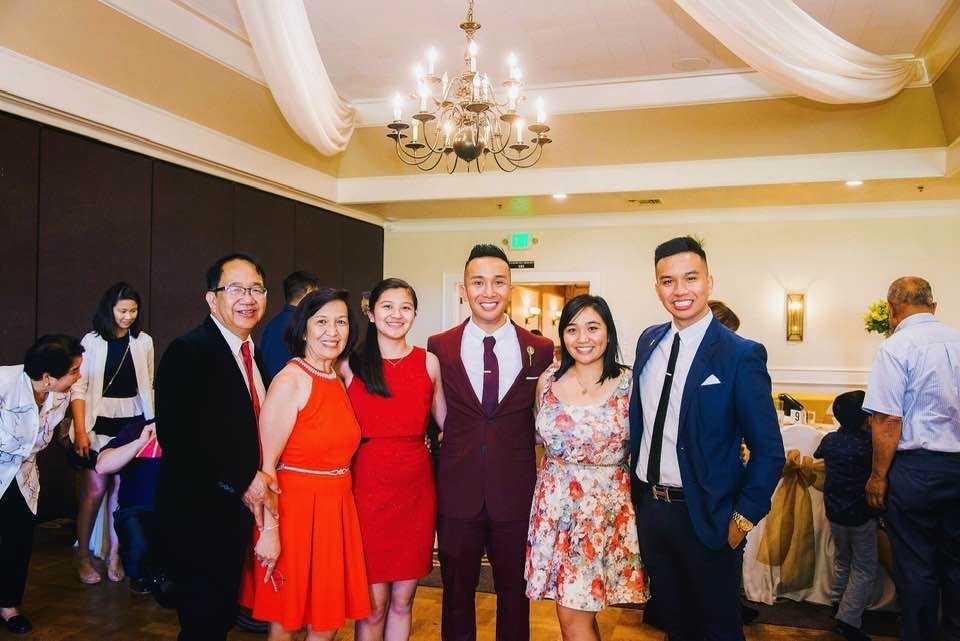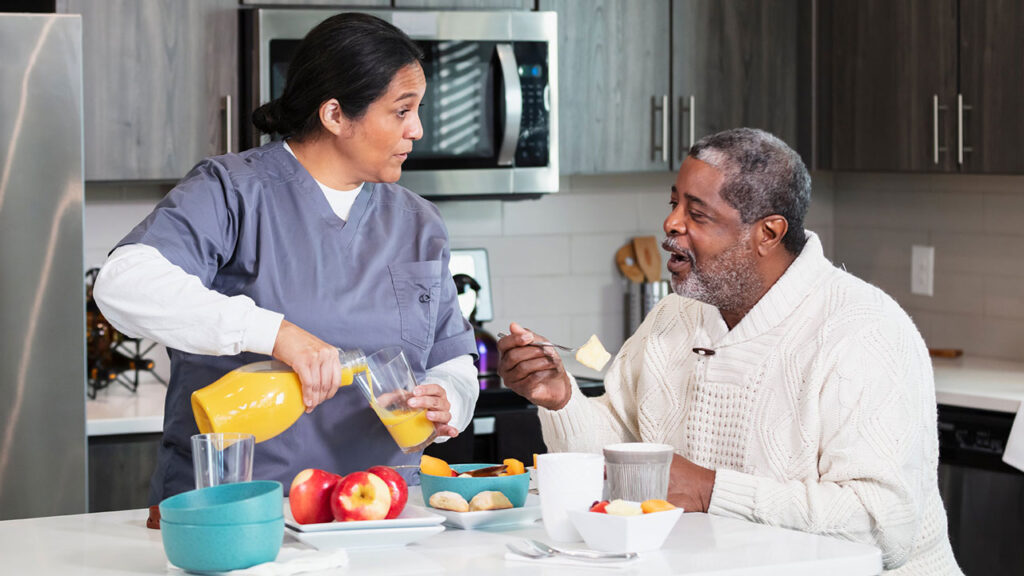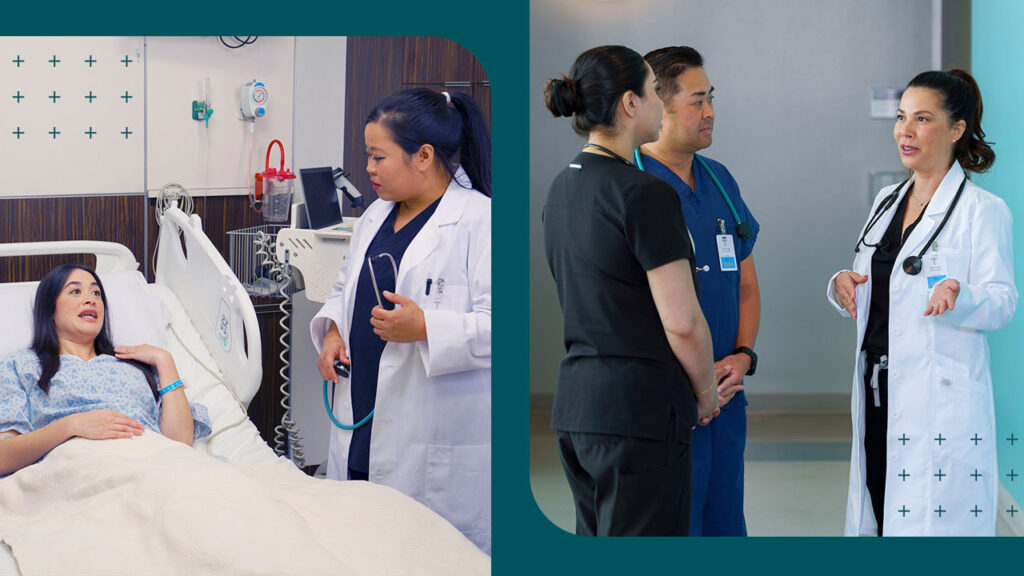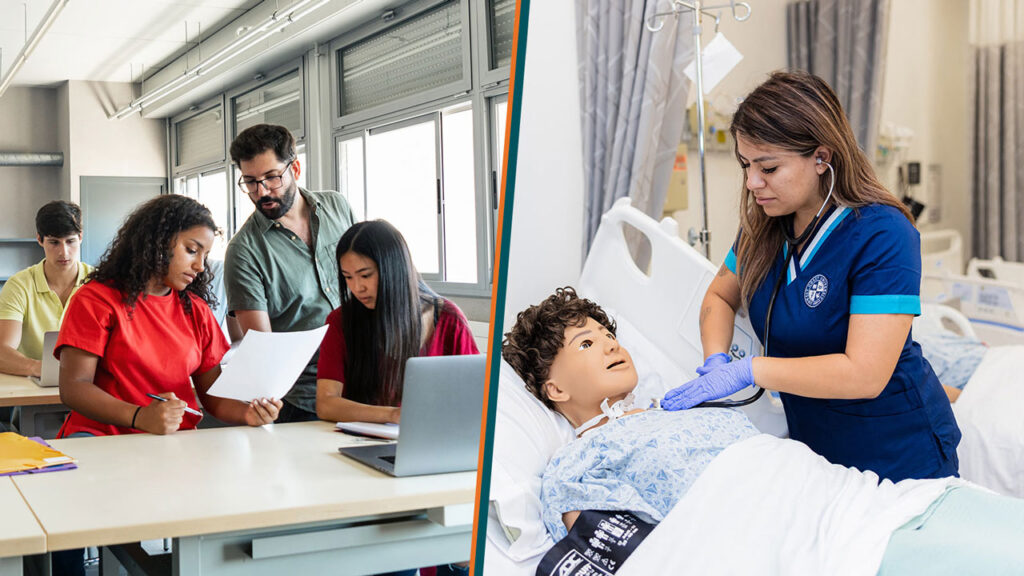Growing up in a Filipino family, Jonathan Llamas said he was exposed early on to the values and beliefs that provided his unique introduction to nursing.
After graduating from high school in 2008, Llamas took part in a medical mission to provide care for the underserved populations of the Philippines. There, Llamas said he was astonished not only by the sheer numbers of homeless he and his group were serving on a daily basis, but also by the positive impact he felt he was making.
“I was inspired by the amount of compassion the nurses and medical staff exemplified in the clinical setting. By allowing myself to be immersed in the service of others, I developed an unyielding compassion toward others that ultimately compelled me to pursue my degree in nursing,” Llamas said.
After earning his bachelor’s in nursing from West Coast University in 2013, Llamas worked as a registered nurse in various specialties including emergency room, intensive care unit, and inpatient psychiatric settings. After two years working full-time, Llamas went back to school and in 2019 he received his Doctor of Nursing Practice (DNP) degree with a concentration as a psychiatric-mental health nurse practitioner.
“I have always been fascinated by the miraculous wonder of the human mind, and the inherent beauty and evolution of life that emanates from the adept functioning of the brain,” he said. “Since nursing school, I began to realize the importance of mental health not only on a national level but also on a global scale. I developed a passion for mental health which ultimately fueled my desire to become a psychiatric-mental health nurse practitioner and better understand and treat the psychological, emotional, and spiritual ailments associated with mental illness in today’s modern society.”
Currently, Llamas works as a psychiatric-mental health nurse practitioner in Beverly Hills, where he mainly treats adults suffering from various psychiatric illnesses and conditions. Additionally, Llamas also serves as the chapter president for the WCU Alumni Association, as well as a freelance writer for Minority Nurse and NP Student magazines.
Since the onset of COVID-19, Llamas primarily has worked remotely via telemedicine which he feels has greatly increased access to much-needed resources to many individuals suffering from mental illness.
“I truly believe in the saying, ‘There is no health without mental health,’” Llamas said. “I have made it my mission to continue to influence public health initiatives by continuing to raise mental health awareness and reduce the stigma associated with psychiatric disorders across healthcare spectrum.”
•••
What was the biggest life-lesson that school taught you?
When I first began nursing school, I was unprepared for the academic expectations demanded of me. Due to immaturity, my grades suffered during the early stages of my academic career. I was humiliated and rejected by numerous nursing schools before being accepted by West Coast University. WCU provided me the opportunity to redeem myself and to achieve my dream of becoming a registered nurse. Because of the university and the unyielding support of my family, I learned the importance of developing a resilient mindset which is crucial to success. Because of that, I am a strong believer in positive thinking and learning from the mistakes you made. Only by developing resilience can we truly set specific and achievable personal goals — goals that not only match our values but that also build off our self-confidence.
If any of you are struggling or currently facing tremendous adversity in your life, please remember this – don’t let anyone write your story and stand in the way of your greatness. Although you can never go back and change your beginning, it is never too late to start where you are and change your ending. Let your faith be bigger than your fears and your perseverance be stronger than your doubts.
Did you ever want to quit?
Although I faced tremendous hardships and adversities during the early phases of my nursing journey, I never once thought about quitting or giving up. There was always an inner drive in me to finish what I started and to prove to myself that I can complete the nursing program regardless of how long it takes.
Ten years ago, a college advisor told me, “You’re not good enough to be in the nursing program. You don’t have the grades, the skillset, or the academic pedigree to become a successful nurse and you should consider switching majors.” Growing up, I was never the smartest nor the most successful in my class. I was considered an average student by most of my teachers and never particularly gifted in science or math. When I graduated high school, I had an extremely difficult time getting accepted into a nursing program. I was constantly rejected from various nursing schools due to my poor academic performance and I began to feel hopeless, lost, and uncertain about my future. Despite all of the struggles I had to endure, my family refused to give up on me.
Was there a moment in school that really cemented you made the right decision to work in healthcare?
During my advanced med-surg rotation, my nurse and I were assigned to care for a little girl complaining of a headache. The father told me that her symptoms began after she was inadvertently hit in the head with a soccer ball. The medical doctor on staff quickly dismissed the girl as having a “minor headache” and told the father that ice and rest was all she required. I felt uncomfortable sending the little girl home after she confided in me that she had never had a headache this painful before. Seeing her grimace in pain, I urgently requested my nurse and the doctor to (order a brain scan for her). Despite the doctor’s initial objection, he finally agreed. Upon evaluation of the final results, we discovered a small intracranial hemorrhage was beginning to form. Seeing the tears of gratitude from her father allowed me to recognize the importance of doing the right thing even in the midst of adversity.
WCU provides career guidance and assistance but cannot guarantee employment. The views and opinions expressed are those of the individuals and do not necessarily reflect the beliefs or position of the school or of any instructor or student.



